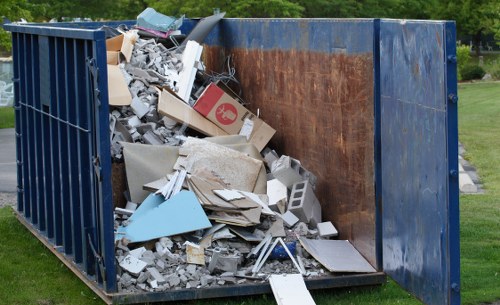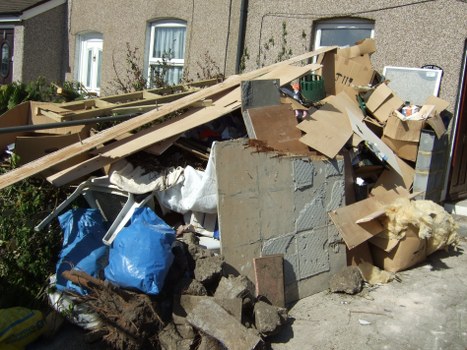Rubbish Collection Childs Hill: Efficient and Reliable Waste Management Services

Living in Childs Hill offers a harmonious blend of suburban tranquility and urban convenience. However, like any thriving community, effective rubbish collection is essential to maintain cleanliness and environmental health. Understanding the intricacies of rubbish collection in Childs Hill can help residents manage their waste more efficiently and contribute to a greener neighborhood.
Rubbish collection services in Childs Hill are designed to cater to the diverse needs of its residents. From regular household waste to bulky items and recycling, the local waste management providers ensure that all types of rubbish are collected systematically and responsibly. This article delves into the specifics of rubbish collection in Childs Hill, highlighting the services available, schedules, recycling initiatives, and tips for effective waste management.
One of the key aspects of rubbish collection in Childs Hill is the schedule. Regular pickups are scheduled based on the type of waste, ensuring that both general rubbish and recyclables are collected timely. Understanding this schedule allows residents to plan their waste disposal accordingly, minimizing the risk of overflow and maintaining the area's cleanliness.

Rubbish Collection Services in Childs Hill
Childs Hill offers a comprehensive range of rubbish collection services to meet the varying needs of its residents. These services are designed to ensure that waste is managed efficiently, keeping the community clean and healthy.
General Household Waste
General household waste collection is a fundamental service provided in Childs Hill. Residents are scheduled for regular pickups, typically once a week, where everyday rubbish such as food scraps, packaging, and non-recyclable materials are collected. Proper segregation of waste at the source helps in efficient collection and disposal.
Recycling Services
Recycling is a significant component of rubbish collection in Childs Hill. The service includes the collection of recyclable materials like paper, cardboard, glass, plastics, and metals. By separating recyclables from general waste, residents contribute to reducing the carbon footprint and promoting sustainable practices within the community.
Bulky Waste Collection
For larger items that do not fit into regular waste bins, Childs Hill provides a bulky waste collection service. This includes the disposal of furniture, appliances, and other sizeable items. Residents can schedule pickups for bulky waste, ensuring that these items are removed safely and responsibly without cluttering their living spaces.

Recycling Initiatives in Childs Hill
Recycling plays a crucial role in Childs Hill’s waste management strategy. The community is committed to reducing landfill usage and promoting sustainable practices through various recycling initiatives.
Segregation at Source
One of the primary initiatives is encouraging residents to segregate their waste at the source. By separating recyclables from non-recyclables, the efficiency of the recycling process is significantly enhanced. This practice not only simplifies the collection process but also ensures that more materials are successfully recycled.
Recycling Centers
Childs Hill is equipped with recycling centers where residents can bring additional recyclable materials. These centers are equipped to handle a wide range of materials, ensuring that items not collected during regular pickups are still recycled properly. This accessibility encourages more people to participate in recycling efforts.
Community Education Programs
Educating the community about the importance of recycling is another key initiative. Workshops, seminars, and informational campaigns are regularly conducted to inform residents about best practices in waste segregation and the benefits of recycling. Informed residents are more likely to participate actively in waste reduction efforts.

Rubbish Collection Schedule in Childs Hill
Understanding the rubbish collection schedule is essential for effective waste management. Childs Hill has a structured timetable that ensures regular and timely collection of different types of waste.
Weekly Collections
General household waste is collected on a weekly basis, typically mid-week. Residents are advised to place their rubbish bins out the night before to ensure timely pickup. Adhering to the schedule helps maintain the cleanliness of the area and prevents overflow.
Recycling Pickup Days
Recyclable materials have designated pickup days separate from general waste. This separation allows for more efficient processing and reduces contamination in recycling streams. Residents should follow the specific guidelines for placing recyclables in the appropriate bins.
Special Collections
In addition to regular pickups, Childs Hill offers special collection services for items like garden waste or holiday waste. These collections may be scheduled on specific dates or upon request, providing flexibility for residents to manage their waste as needed.

Tips for Effective Rubbish Collection
Maximizing the efficiency of rubbish collection requires some effort from residents. Here are some practical tips to ensure effective waste management in Childs Hill:
- Segregate Waste: Separate recyclables from non-recyclables to streamline the collection process.
- Use Appropriate Bins: Ensure you are using the correct bins for different types of waste as per the schedule.
- Compact Your Rubbish: Reducing the volume of waste by compacting it can help prevent overflow and optimize collection.
- Schedule Special Pickups: For bulky or unusual items, make sure to schedule a special pickup ahead of time.
- Educate Your Household: Ensure all members of your household understand the waste segregation and collection procedures.
Environmental Impact of Proper Rubbish Collection
Effective rubbish collection has a significant positive impact on the environment. By managing waste responsibly, Childs Hill contributes to reducing pollution, conserving natural resources, and promoting sustainability.
Reduction of Landfill Waste
Proper segregation and recycling minimize the amount of waste that ends up in landfills. This reduces the strain on landfill sites and helps in preserving land for other essential uses.
Conservation of Resources
Recycling allows materials to be reused, conserving natural resources such as timber, water, and minerals. This conservation is critical for sustainable development and environmental preservation.
Energy Savings
Recycling processes typically require less energy compared to producing new materials from scratch. This energy saving contributes to lower greenhouse gas emissions and combats climate change.
Local Relevance: Surrounding Areas to Childs Hill
Childs Hill is surrounded by several neighborhoods, each contributing uniquely to the overall waste management ecosystem. Understanding the proximity and features of these areas can enhance waste collection efficiency and community cooperation.
- East Barnet: Located to the east, East Barnet shares similar waste management practices, making it easy for residents to coordinate special pickups.
- Mill Hill: To the northwest, Mill Hill benefits from Childs Hill’s recycling initiatives, encouraging mutual participation in sustainability programs.
- Totteridge: Adjacent to the southwest, Totteridge residents often collaborate with Childs Hill for bulky waste collection.
- Brunswick Park: Southeast of Childs Hill, Brunswick Park has integrated its waste schedule with Childs Hill, ensuring seamless waste collection services.
- West Finchley: Located to the west, West Finchley utilizes similar segregation practices, promoting a unified approach to recycling.
- New Southgate: Northeast of Childs Hill, New Southgate shares resources for recycling centers, enhancing the community’s recycling capabilities.
- High Barnet: To the north, High Barnet residents benefit from shared environmental education programs with Childs Hill.
- Burnt Oak: Southwest of Childs Hill, Burnt Oak collaborates on joint waste management initiatives, improving overall efficiency.
- Totteridge Fields: Near Totteridge, Totteridge Fields participates in bulk waste collection days organized with Childs Hill.
- Woodside Park: East of Childs Hill, Woodside Park integrates its recycling efforts with Childs Hill’s initiatives, fostering community-wide sustainability.
- Queensbury: Northwest, Queensbury benefits from shared recycling centers, making it convenient for residents to dispose of recyclables.
- Wheathampstead: Southwest, Wheathampstead works with Childs Hill on special waste collection projects, ensuring all waste types are managed properly.
Challenges and Solutions in Rubbish Collection
Despite efficient systems, rubbish collection in Childs Hill faces certain challenges. Addressing these issues is crucial for maintaining the community’s cleanliness and environmental standards.
Overcrowded Landfills
One of the significant challenges is the overcrowding of landfills. With increasing population and waste generation, landfills are reaching their capacity. To combat this, Childs Hill emphasizes recycling and waste reduction initiatives to minimize the amount of waste directed to landfills.
Recycling Contamination
Contamination in recycling streams is another issue. Improper segregation of waste leads to mixed materials, making recycling more difficult and less efficient. Educating residents on correct waste segregation practices and providing clear guidelines can significantly reduce contamination levels.
Bulky Waste Management
Managing bulky waste efficiently poses its own set of challenges. Ensuring timely pickups and proper disposal of large items requires coordination and adequate resources. Enhancing scheduling systems and increasing the availability of bulky waste collection slots can help address this problem.
Public Awareness
Ensuring that all residents are aware of the rubbish collection schedules and practices is essential for effective waste management. Continuous public awareness campaigns and easily accessible information can improve participation rates and compliance with waste disposal guidelines.
Future of Rubbish Collection in Childs Hill
The future of rubbish collection in Childs Hill is geared towards sustainability and technological integration. Embracing new technologies and innovative practices will enhance waste management efficiency and environmental impact.
Smart Waste Management Systems
Implementing smart waste management systems, such as sensor-equipped bins that notify when they are full, can optimize collection routes and schedules. This reduces unnecessary pickups and ensures timely waste disposal.
Increased Recycling Programs
Expanding recycling programs to include more materials and providing additional recycling centers can further reduce landfill dependency. Initiatives like composting organic waste can also be integrated to promote a zero-waste community.
Community Engagement
Enhancing community engagement through incentives for proper waste segregation and participation in recycling programs can drive positive behavioral changes. Collaborative efforts between residents, local authorities, and waste management providers are essential for a sustainable future.
Environmental Policies
Adopting stringent environmental policies and regulations can support ongoing waste management efforts. Encouraging policies that promote waste reduction, recycling, and responsible disposal will ensure that Childs Hill remains a clean and sustainable community.
Conclusion
Rubbish collection in Childs Hill is a well-organized system that plays a vital role in maintaining the community’s cleanliness and environmental health. By understanding the services available, adhering to schedules, and actively participating in recycling initiatives, residents can contribute to a sustainable and thriving neighborhood. As the community continues to grow, embracing future-oriented waste management practices will ensure that Childs Hill remains a model for effective rubbish collection and environmental stewardship.
Frequently Asked Questions
1. How often is general waste collected in Childs Hill?
General household waste in Childs Hill is typically collected once a week. Residents are advised to place their rubbish bins out the night before the scheduled pickup day.
2. What items are accepted in the recycling program?
The recycling program in Childs Hill accepts paper, cardboard, glass, plastics, and metals. It is important to clean and sort these materials properly to avoid contamination.
3. How can I schedule a bulky waste pickup?
Residents can schedule a bulky waste pickup by contacting the local waste management provider through their official website or customer service hotline. It is recommended to schedule pickups in advance to ensure timely service.
4. Are there any fees associated with special waste collections?
Some special waste collections, such as bulky items, may incur additional fees. It is best to check with the local waste management provider for detailed information on any applicable charges.
5. What should I do with hazardous waste in Childs Hill?
Hazardous waste should not be placed in regular waste or recycling bins. Instead, residents should take it to designated hazardous waste disposal centers or participate in scheduled hazardous waste collection events organized by the local authorities.